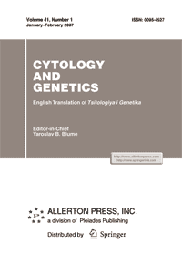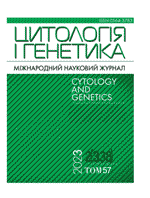Present study was intended to examine the comparative transcript profile of six droughtresponsive genes under water deficit conditions in sugarcane. Two tolerant genotypes of sugarcane Co 98014 and Co 0118 and two sensitive genotypes CoJ 85 and Co 89003 have had the contrast response to water stress were planted in big plastic pots in a complete randomized design. Water deficit conditions were created by water withholding on 120th day. Soil moisture was measured by gravimetric method. The moisture content was observed 23.9, 18.1 and 5.9 % on 120th day, 135th and 150th day, respectively (0–20 cm soil depth). The third upper expanded leaf was randomly collected as sample of all three stages. Using quantitative PCR analysis change in mRNA transcript was calculated and the level of mRNA transcript was remarkedly increased for SOD and DroPro gene in tolerant than sensitive genotypes on 150th day whereas DREB and DNAj TFs was observed higher at 135th day as compared to irrigated condition (120th day). FerredoxinI and LEA gene transcripts were completely down regulated on 150th day. The fold change was comparatively more down regulated in the sensitive genotypes in compare to tolerant genotypes. The present study endorses the further exploration of these genes and its gene families for the future researchers.
Keywords: Sugarcane; Water stress; Transcript expression; qPCR; Formative phase

Full text and supplemented materials
References
1. Borges, J.C., Peroto, M.C., and Ramos, C.H.I., Molecular chaperone genes in the sugarcane expressed sequence database (SUCEST), Genet. Mol. Biol., 2001, vol. 24, pp. 85–92.
2. Bray, E.A., Molecular responses to water deficit, Plant Physiol., 1993, vol. 103, no. 4, pp. 1035–1040.
3. Bray, E.A., Classification of genes differentially expressed during water-deficit stress in Arabidopsis thaliana: an analysis using microarray and differential expression data, Ann. Bot., 2002, vol. 89, pp. 803–811.
4. Chaves, M.M., Maroco, J.P., and Pereira, J.S., Understanding plant responses to drought—from genes to the whole plant, Funct. Plant Biol., 2003, vol. 30, pp. 239–264.
5. Cheong, Y.H., Chang, H.S.C., Gupta, R., Wang, X., Zhu, T., and Luan, S., Transcriptional profiling reveals novel interactions between wounding, pathogen, abiotic stress, and hormonal responses in Arabidopsis, Plant Physiol., 2002, vol. 129, pp. 661–677.
6. de Andrade, J.C.F., Terto, J., Silva, J.V., and Almeida, C., Expression profiles of sugarcane under drought conditions: variation in gene regulation, Genet. Mol. Biol., 2015, vol. 38, no. 4, pp. 465–469.
7. Ferreira, T.H., Gentile, A., Vilela, R.D., Costa, G.G., Dias, L.I., Endres, L., and Menossi, M., MicroRNAs associated with drought response in the bioenergy crop sugarcane (Saccharum spp.), PLoS One, 2012, vol. 7, p. 10.
8. Galmes, J., Pou, A., Alsina, M.M., Tomas, M., Medrano, H., and Flexas, J., Aquaporin expression in response to different water stress intensities and recovery in Richter-110: relationships with ecophysiological status, Planta, 2007, vol. 226, pp. 671–681.
9. Gascho, G.J. and Shih, S.F., Sugarcane, in Crop–Water Relations, Teare, I.D. and Peet, M.M., Eds., New York: Wiley, 1983, pp. 445–479.
10. Gentile, A., Ferreira, T.H., Mattos, R.S., Dias, L.I., Hoshino, A.A., Carneiro, M.S., Souza, G.M., Jr, T.C., Nogueria, R.M., Endres, L., and Menossi, M., Effects of drought on the micro transcriptome of field-grown sugarcane plants, Planta, 2013, vol. 237, pp. 783–798.
11. Gosal, S.S., Wani, S.H., and Kang, M.S., Biotechnology and drought tolerance, J. Crop Improv., 2009, vol. 23, no. 1, pp. 19–54.
12. Grigorova, B., Vaseva, I., Demirevska, K., and Feller, U., Combined drought and heat stress in wheat: changes in some heat shock proteins, Biol. Plant., 2011, vol. 55, no. 1, pp. 105–111.
13. Gutierrez, L., Mauriat, M., Guenin, S., Pelloux, J., Lefebvre, J.F., Louvet, R., Rusterucci, C., Moritz, T., Guerineau, F., Bellini, C., and Wuytswinkel, V.O., The lack of a systematic validation of reference genes: a serious pitfall undervalued in reverse transcription-polymerase chain reaction (RT-PCR) analysis in plants, Plant Biotechnol. J., 2008, vol. 6, pp. 609–618.
14. Hieng, B., Ugrinovic, K., Sustar-Vozlic, J., and Kidric, M., Different classes of proteases are involved in the response to drought of Phaseolus vulgaris L. cultivars differing in sensitivity, J. Plant Physiol., 2004, vol. 161, pp. 519–530.
15. Iskandar, H.M., Simpson, R.S., Casu, R.E., Bonnett, G.D., Maclean, D.J., and Manners, J.M., Comparison of reference genes for quantitative real-time polymerase chain reaction analysis of gene expression in sugarcane, Plant Mol. Biol. Rep., 2004, vol. 22, pp. 325–337.
16. Iskandar, H.M., Casu, R.E., Fletcher, A.T., Schmidt, S., Xu, J., Maclean, D.J., Manners, J.M., and Bonnett, G.D., Identification of drought-response genes and a study of their expression during sucrose accumulation and water deficit in sugarcane culms, BMC Plant Biol., 2011, pp. 11–12.
17. Kumar, D., Malik, N., and Sengar, R.S., Physico-biochemical insights into sugarcane genotypes under water stress, Biol. Rhythm Res., 2019, vol. 52, no. 1, pp. 92–115. https://doi.org/10.1080/09291016.2019.1587838
18. Livak, K.J. and Schmittgen, T.D., Analysis of relative gene expression data using realtime quantitative PCR and the 2 DDCT methods, Methods, 2001, vol. 25, pp. 402–408.
19. Locy, R.D., Hasegawa, P.M., and Bressan, R.A., Stress physiology, in Plant Physiology, Taiz, L. and Zeiger, E., Eds., 3rd ed., Sunderland, MA: Sinauer Associates, Inc., 2002, pp. 2438–2442.
20. Miao, Y., Lv, D., Wang, P., Wang, X., Chen, J., Miao, C., and Song, C., An Arabidopsis glutathione peroxidase functions as both a redox transducer and a scavenger in abscisic acid and drought stress response, Plant Cell, 2006, vol. 18, pp. 2749–2766.
21. Micheletto, S., Rodriguez-Uribe, L., Hernandez, R., Richins, R.D., Curry, J., and O’Connell, M.A., Comparative transcript profiling in roots of Phaseolus acutifolius and P. vulgaris under water deficit stress, Plant Sci., 2007, vol. 173, pp. 510–520.
22. Papini-Terzi, F.S., Rocha, F.R., Vencio, R.Z.N., Felix, J.M., Branco, D.S., Waclawosky, A.J., DelBem, L.E.V., Lembke, C.G., Costa, M.D.L., Nishiyama, M.Y., Vicentini, R., Vincentz, M.G.A., Ulian, E.C., Menosi, M., and Souza, G.M., Sugarcane genes associated with sucrose content, BMC Genomics, 2009, vol. 10, p. 120.
23. Rabbani, M.A., Maruyama, K., and Abe, H., Monitoring expression profiles of rice genes under cold, drought and high salinity stresses and abscisic acid application using cDNA microarray and RNA gel-blot analyses, Plant Physiol., 2003, vol. 133, pp. 1755–1767.
24. Rocha, F.R., Papini-Terzi, F.S., and Nishiayama, M.Y., Signal transduction- related responses to phytohormones and environmental challenges in sugarcane, BMC Genomics, 2007, vol. 8, pp. 71–92.
25. Roche, J., Hewezi, T., Bouniols, A., and Gentzbittel, L., RT-PCR monitoring of signal transduction related genes involved in water stress tolerance mechanism of sunflower, Plant Physiol. Biochem., 2009, vol. 47, pp. 139–145.
26. Rodriguez, M., Identification of genes induced upon water-deficit stress in a drought-tolerant rice cultivar, J. Plant Physiol., 2006, vol. 163, pp. 577–584.
27. Rodrigues, F.A., de Laia, M.L., and Zingaretti, S.M., Analysis of gene expression profiles under water stress in tolerant and sensitive sugarcane plants, Plant Sci., 2009, vol. 176, pp. 286–302.
28. Rodrigues, F.A., Graça, J.P., Laia, M.L., Nhani-Jr, A., Galbiati, J.A., Ferro, M.I.T., Ferro, J.A., and Zin-garetti, S.M., Sugarcane genes differentially expressed during water deficit, Biol. Plant., 2011, vol. 55, pp. 43–53.
29. Sakurai, J., Ishikawa, F., Yamaguchi, T., Uemura, M., and Maeshima, M.,Identification of 33 rice aquaporin genes and analysis of their expression and function, Plant Cell Physiol., 2005, vol. 46, pp. 1568–1577.
30. Schuppler, U., He, P.H., John, P.C.L., and Munns, R., Effect of water stress on cell division and cell-division-cycle 2-like cell-cycle kinase activity in wheat leaves, Plant Physiol., 1998, vol. 117, no. 2, pp. 667–678.
31. Seki, M., Narusaka, M., and Ishida, J., Monitoring the expression profiles of 7000 Arabidopsis genes under drought, cold, and high-salinity stresses using a full length microarray, Plant J., 2002, vol. 31, pp. 279–292.
32. Shinozaki, K., Yamaguchi, S., and Seki, K.M., Regulatory network of gene expression in the drought and cold stress responses, Curr. Opin. Plant Biol., 2003, vol. 6, pp. 410–417.
33. Shinozaki, K. and Yamaguchi-Shinozaki, K., Gene networks involved in drought stress response and tolerance, J. Exp. Bot., 2007, vol. 58, no. 2, pp. 221–227.
34. Silva, M.D.A., Silva, J.A.G., Enciso, J., Sharma, V., and Jifon, J., Yield components as indicators of drought tolerance of sugarcane, Sci. Agric., 2008, vol. 65, no. 6, pp. 62–627.
35. Tardif, G., Kame, N.A., Adam, H., Labrie, L., Major, G., Gulick, P., Sarhan, F., and Laliberte, J., Interaction of network of proteins associated with abiotic stress and development in wheat, Plant Mol. Biol., 2007, vol. 63, pp. 703–718.
36. Vilela, R.D., Bezzera, B.K.L., Froehlich, A., and Endres, L., Antioxidant system is essential to increase drought tolerance of sugarcane, Ann. App. Biol., 2017, vol. 171, no. 3, pp. 451–463.
37. Wang, W., Vinocur, B., and Altman, A., Plant responses to drought, salinity and extreme temperatures: towards genetic engineering for stress tolerance, Planta, 2003, vol. 218, pp. 1–14.
38. Wang, W., Vinocur, B., Shoseyov, O., and Altman, A., Role of plant heat- shock proteins and molecular chaperones in abiotic stress response, Trend Plant Sci., 2004, vol. 9, pp. 244–252.
39. Zelazny, E., Miecielica, U., Borst, J.W., Hemminga, M.A., and Chaumont, F., An N-terminal diacidic motif is required for the trafficking of maize aquaporins ZmPIP2;4 and ZmPIP2;5 to the plasma membrane, Plant J., 2009, vol. 57, pp. 346–355.
40. Zhu, J.K., Cell signaling under salt, water and cold stresses, Curr. Opin. Plant Biol., 2001, vol. 4, pp. 401–406.
